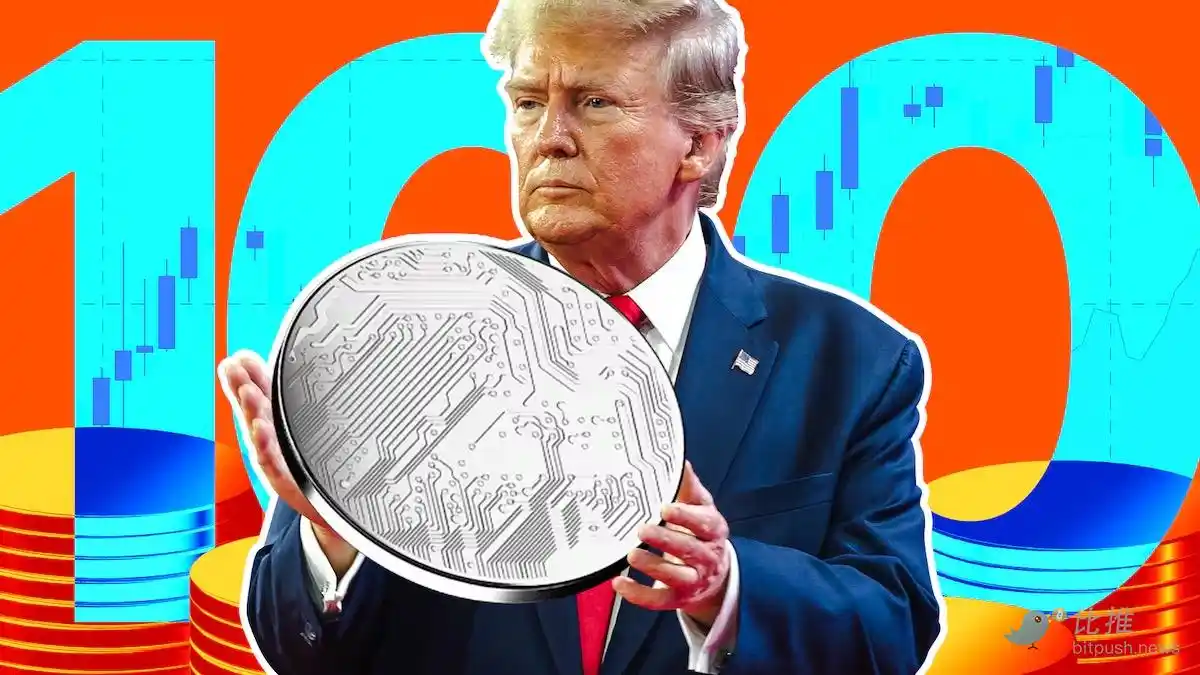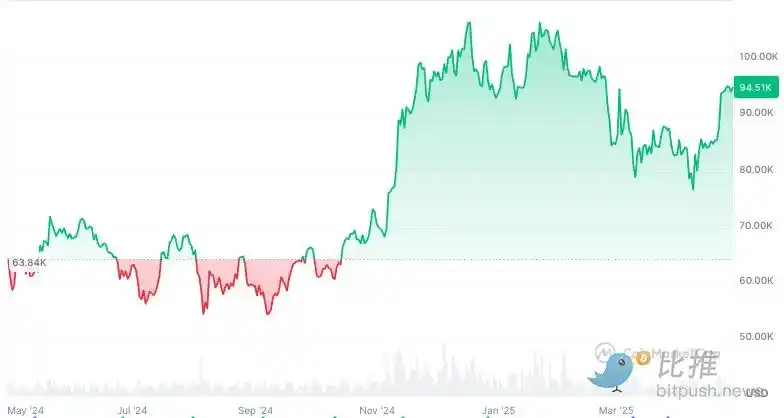Original Title: Crypto experts score Trump's first 100 days: "More symbolic than substantial"
Original Source: DL News
Original Translation: BitpushNews

Since Trump took office as President of the United States, there has been chaos across various industries. As he celebrates his first 100 days in his second term, supporters of digital assets are beginning to examine what Trump's administration means for the industry.
Mateusz Kara, CEO of cryptocurrency company Ari10, told DL News, "The question is, have we overestimated what Trump can do?"
During last year's U.S. election, the cryptocurrency industry supported Trump, hoping he would end the Biden administration's crackdown on cryptocurrencies, implement favorable regulations for the industry, and kickstart a bull market. While some regulations have been relaxed, the White House's trade war has led to a nearly 21% decline in the global cryptocurrency market capitalization since its peak in December last year, amounting to about $800 billion.
Bitcoin has fallen more than 10% from the level on January 20, the day before Trump's inauguration, when the price of Bitcoin reached an all-time high of $109,225. Dow Jones market data shows that earlier this month, Bitcoin was impacted by tariff concerns, dropping below $74,500 on April 7, and as of the writing of this article, it has rebounded to around $94,500.

So, what promises has Trump fulfilled so far, and where does the industry go from here?
The "Cryptocurrency War" of the Biden Era
Former U.S. President Joe Biden has been a harsh critic of cryptocurrencies, pushing for strict regulations on the industry and supporting the crackdown initiated by then-SEC Chairman Gary Gensler.
During his campaign, Trump promised to end Biden's "cryptocurrency war." After taking office, Trump replaced Gensler with pro-cryptocurrency new chairman Paul Atkins, who promised to bring clarity to cryptocurrency regulation. This year, the SEC dropped lawsuits against cryptocurrency companies such as Coinbase, Ripple, and Kraken.
Trump also appointed industry supporters, such as financial mogul Howard Lutnick, who supports Tether, as Secretary of Commerce, and David Sacks as the cryptocurrency czar. In his first 100 days in office, Trump issued a series of comprehensive orders banning the creation of a digital dollar, protecting self-custody, establishing a regulatory cryptocurrency advisory group, and creating a strategic Bitcoin reserve.
He also pardoned Silk Road founder Ross Ulbricht and hosted the first White House cryptocurrency summit. This year, federal regulators have rescinded several cryptocurrency guidelines from the Biden era, paving the way for financial institutions to enter the cryptocurrency service space.
Symbolism > Substantial Benefits?
In short, Trump seems to have fulfilled most of his cryptocurrency promises. So why do some market observers feel dissatisfied?
Jonathan Dixon, an executive at regulatory technology company eflow Global, told DL News, "So far, many campaign promises seem more symbolic than substantive."
"The Bitcoin reserve is essentially a rebranding—these assets have long been held by the government and do not indicate active market participation," Dixon said, adding that while Trump's actions mark a "shift in rhetoric from the previous administration," "mere rhetoric does not translate into regulatory certainty."
The Trump administration has yet to push through new laws, but some legislation is advancing on Capitol Hill. South Carolina Republican Senator Tim Scott stated in early April, "We are making good progress."
Eric Rose, Executive Director of Digital Assets at StoneX, pointed out, "These are all very positive factors for the field, but they need time to prove themselves… Just because banks are allowed to participate in the digital asset space doesn't mean they can jump in tomorrow, right? They need time to strategize, decide the direction they want to develop, how to implement that strategy, and hire the relevant personnel."
Eric Rose stated in an interview with Market Watch that this could take up to two years of preparation time.
Trade War
Ari10 CEO Mateusz Kara stated, "The market may be disappointed with Trump's administration because we haven't seen data rise. This is the result of the delayed interest rate cuts and the chaos Trump has brought to the market." Trump has yet to fulfill his promise of interest rate cuts, and the Federal Reserve's rate cuts are seen as a catalyst for risk assets like cryptocurrencies and stocks.
This is one reason why Bitcoin surged when central banks cut rates in September and November. The issue is that the Federal Reserve operates independently of the White House, and Fed Chairman Jerome Powell is reluctant to cut rates, especially after Trump imposed comprehensive tariffs on nearly 100 countries (most of which are "penguin" island nations) and made the financial future of the U.S. more uncertain.
After Trump halted these tariffs, the overall cryptocurrency market saw a slight rebound, but any hostile actions could offset this impact. Anthony Young, Chief Business Officer of cryptocurrency risk management company CoinCover, stated, "The U.S. government's trade war will inevitably affect the cryptocurrency industry, and the focus is on whether cryptocurrencies can continue to serve as a hedge against global market behavior."
Some believe that Trump's trade war may be beneficial for cryptocurrencies. Papuna Lezhava, CEO and co-founder of fintech startup Keepz and former advisor to the International Monetary Fund, stated, "Trump's foreign trade policy may actually make cryptocurrencies more attractive to those looking to avoid the traditional financial system or government-controlled currencies."
免责声明:本文章仅代表作者个人观点,不代表本平台的立场和观点。本文章仅供信息分享,不构成对任何人的任何投资建议。用户与作者之间的任何争议,与本平台无关。如网页中刊载的文章或图片涉及侵权,请提供相关的权利证明和身份证明发送邮件到support@aicoin.com,本平台相关工作人员将会进行核查。




